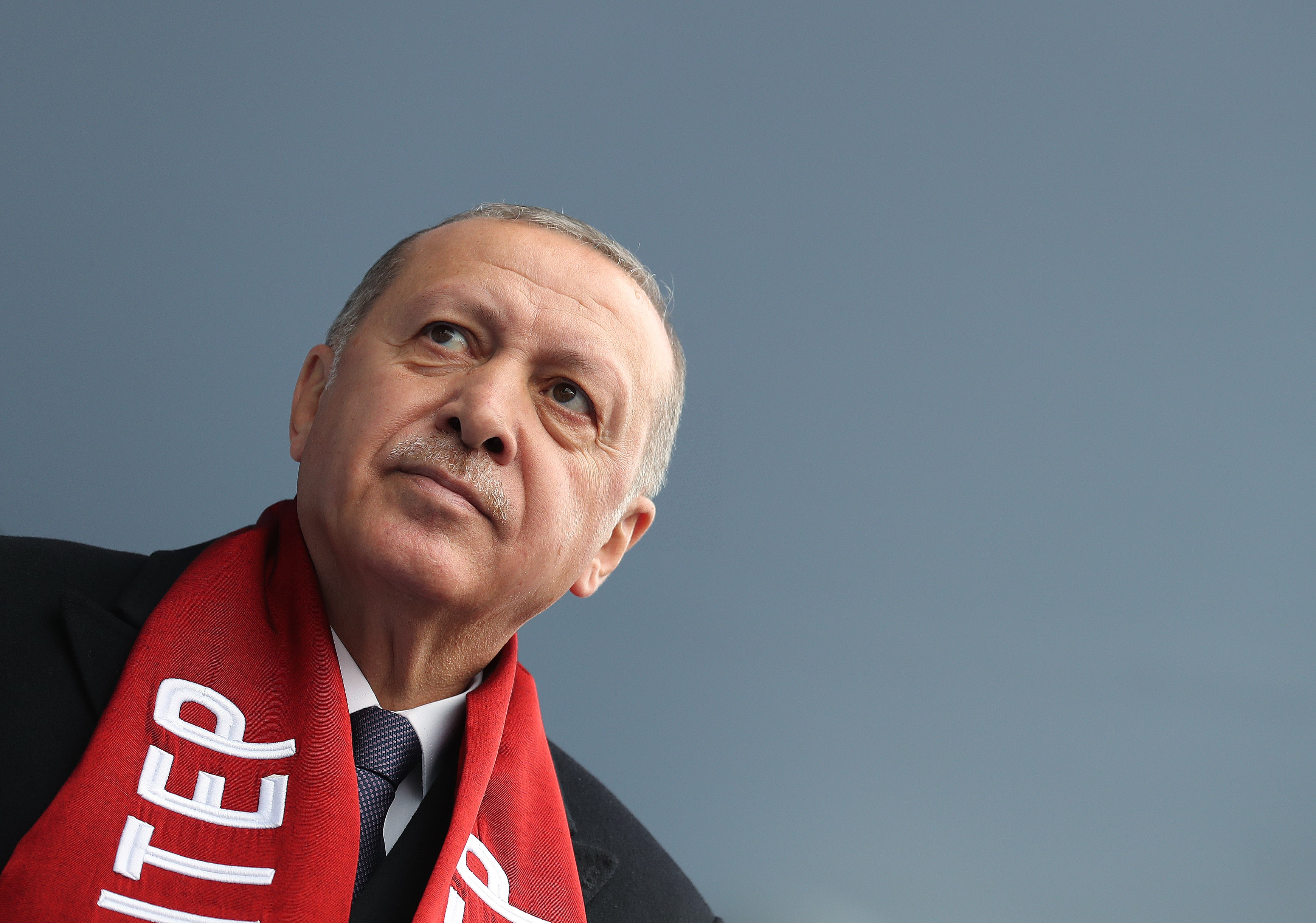Turkish voters send a message in municipal elections
- By Sajjad Malik
 0 Comment(s)
0 Comment(s) Print
Print E-mail China.org.cn, April 14, 2019
E-mail China.org.cn, April 14, 2019

It's rare that the outcome of any country's local government elections is so eagerly awaited at global level. But this is just what happened on March 31, when Turkish citizens voted to elect their municipal representatives.
The hotly contested results from the polls are still being debated on TV and at local election tribunals. But the bigger picture is emerging: Cracks have appeared in the armor of the once-invincible leader Recep Tayyip Erdogan.
Erdogan's ruling Justice and Development Party (AKP) and the Nationalist Movement Party (MHP) competed under the banner of the People's Alliance and won more than 52% of votes, with the AKP getting about 44%. The Nation Alliance of the opposition Republican People's Party (CHP) and the ?Y? Party came in second.
Indicative results showed that opposition candidates pocketed the key mayoral slots in the capital Ankara and are leading in Istanbul, the largest city and economic hub. The opposition alliance has also maintained a hold on the third-largest city of Izmir, which was already ruled by the CHP.
At the same time, the margin of victory in Istanbul is slim, at 0.5%, and a recount and appeal process is in progress. The loss of Istanbul would indeed be painful for Erdogan, as it has served as his bastion. He used his performance as former mayor of the city to catapult himself to the national level and eventually climb to the top. The AKP and its predecessor have controlled Istanbul since mid-1994.
The loss of Ankara is also a blow for the AKP, which has won every election in the capital since 2002. The two largest urban centers provided the platform for religious right to transform the secular political landscape in favor of Erdogan and the AKP.
The polls show that the Turkish people might be fed up with the "strongman syndrome" that has become a dominant phenomenon in global politics, as several countries in the recent past have opted to side with strong national leaders.
Most of these leaders use nationalistic and religious sentiments to bend opinion in their favor. Populism provides a crest to ride the domestic political storm, create an aura of heroism and rule by drawing on history and silencing opposition.
In case of Turkey, after coming to power, Erdogan mixed the glorious past with economic growth to cement his position. In the process, he also slowly chipped away at the traditional power of the military establishment to strengthen his base.
Fearing the tilting balance of power, the military decided to take it back, reaching a climax in 2016 when disgruntled soldiers and officers tried to pack up democracy by force.
Instead of leaving the ground, Erdogan faced the challenge of the coup-makers. The response from his supporters was tremendous and the president won. Erdogan saved democracy and the country from sliding backwards.
But he fell out with U.S. when he blamed an Islamic preacher living in the States for the coup and demanded his extradition. Mutual ties were further strained due to disagreements over Syria and Turkey's decision to buy the S-400 defense system from Russia.
Lately, the president has come under fresh pressure due to the economy taking a dive, shaking people's confidence in the prowess of their leader of the last 16 years.
It is immaterial that the alliance led by AKP still won the majority; the main takeaway is that the opposition polled more votes than before. Erdogan was not directly contesting, but he led the campaign. That is why the election results are being judged by the votes polled against parties led by Erdogan.
Though Erdogan is seen as a tough politician who has weathered several storms, it would be quite a feat at this point to revive his fortune and win back the confidence of voters who stood by the opposition parties.
Local elections may not be the most accurate yardstick to measure the popularity of a national leader, but still, the outcome should be taken as warning to Erdogan that he needs to rebuild the economy in order to remain relevant by 2023.
There is one more dimension of these elections. Despite divisive campaigns and complaints lodged against the results, the polls were by and large fair and credible. Turkey has come out stronger, and has shown that the stability of institutions matter to them as a nation.
Sajjad Malik is a columnist with China.org.cn. For more information please visit:
http://m.keyanhelp.cn/opinion/SajjadMalik.htm
Opinion articles reflect the views of their authors, not necessarily those of China.org.cn.
If you would like to contribute, please contact us at opinion@china.org.cn.



 Add your comments...
Add your comments...

